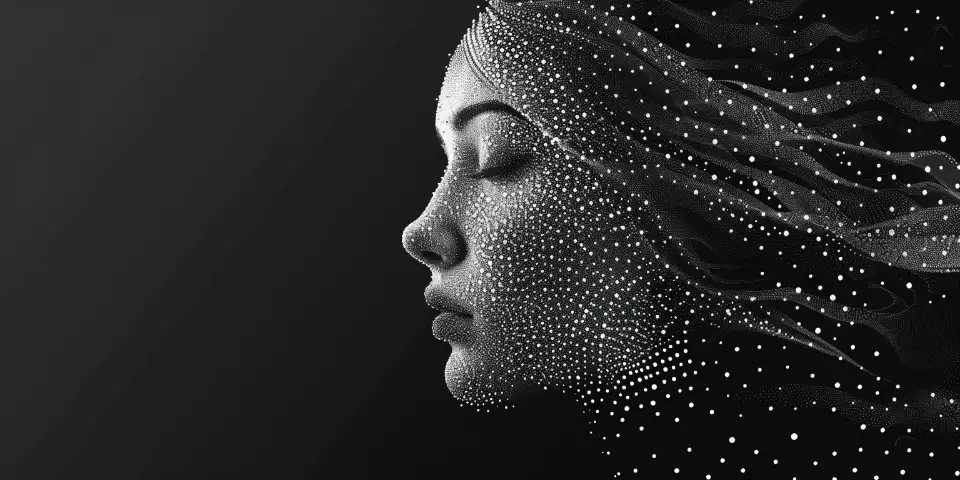AI in Entertainment How it's Changing the Way We Watch Movies and TV Shows
Artificial Intelligence (AI) has rapidly transformed various industries, and the entertainment sector is no exception. From enhancing visual effects to personalizing recommendations, AI is revolutionizing the way we watch movies and TV shows. This article explores the numerous ways in which AI is changing the entertainment landscape, making it more immersive, engaging, and convenient for viewers.
1. Improved Visual Effects
AI-powered technologies have played a major role in enhancing visual effects in movies and TV shows. Machine learning algorithms can now create realistic animated characters and creatures, reducing the reliance on manual labor. For example, in "Avengers: Endgame," AI algorithms seamlessly integrated actor Mark Ruffalo's facial expressions onto the Hulk character, creating a lifelike representation on screen.

Furthermore, AI algorithms can generate stunning visual effects, such as realistic simulations of explosions or natural disasters, making action sequences more thrilling and visually captivating.
2. Personalized Recommendations
AI algorithms analyze vast amounts of user data, including viewing history, preferences, and demographics, to offer personalized movie and TV show recommendations. This technology enables streaming platforms like Netflix and Amazon Prime Video to create customized suggestions for each user based on their individual tastes.
By leveraging AI, viewers can discover new content that aligns with their interests, leading to more enjoyable and tailored entertainment experiences.
3. Enhanced Content Creation
AI is transforming content creation in the entertainment industry. Algorithms can analyze patterns in successful movies and TV shows and generate storylines, characters, and even dialogues. While AI cannot replace human creativity, it can be a valuable tool for generating ideas and inspiration for filmmakers and writers.
For instance, Watson, IBM's AI system, produced a movie trailer for the horror film "Morgan." By analyzing scenes from the movie, Watson identified the most captivating moments, allowing the trailer to be created more effectively.
4. Efficient Post-production Editing
AI streamlines the post-production editing process by automating tasks like color correction, audio enhancement, and video stabilization. Video editing software, such as Adobe Premiere Pro, utilizes AI algorithms to analyze video footage and suggest optimal edits, saving time and effort for editors.
Additionally, AI-powered tools can intelligently identify and remove unwanted elements from scenes, like wires or boom microphones, enhancing the overall visual appeal of the final product.
5. Real-time Audience Analytics
AI-powered technologies enable real-time audience analytics, providing valuable insights for content creators, producers, and marketers. Facial recognition algorithms can gauge audience reactions, measuring their emotions and engagement levels while watching movies and TV shows.
This data allows for better understanding of audience preferences and can influence future content, enabling the industry to create more captivating and successful entertainment experiences.
6. Virtual Reality and AI
The combination of virtual reality (VR) and AI is revolutionizing the immersive experience of watching movies and TV shows. AI algorithms analyze viewer behavior in virtual environments, allowing for adaptive storytelling and dynamic simulations within VR experiences.
Moreover, AI-powered VR platforms, such as Oculus, can generate realistic avatars that respond intelligently to user inputs, creating a more interactive and lifelike social experience within the virtual world.
7. Audio Enhancement and Restoration
AI algorithms are being utilized to enhance and restore audio in movies and TV shows. By analyzing patterns and frequencies, AI tools can remove background noise, enhance dialogue clarity, and even recreate missing or damaged audio segments.
This technology ensures a more immersive and enjoyable audio experience for viewers, eliminating distractions and improving the overall quality of sound.
FAQs:
Q: Can AI replace human actors in movies and TV shows?
A: While AI can generate realistic animated characters, it is unlikely to replace human actors entirely. The art of acting involves complex emotions and nuances that are challenging for AI algorithms to replicate convincingly.
Q: How does AI impact the entertainment industry's job market?
A: AI has the potential to automate certain tasks in the entertainment industry, leading to job displacement in some areas. However, it also creates new job opportunities, particularly in AI development, data analysis, and content creation. The industry will continue to evolve as AI technologies advance.
Q: Are there any ethical concerns regarding AI in entertainment?
A: Yes, there are ethical considerations regarding the use of AI in entertainment. For example, AI algorithms might reinforce biases or stereotypes if not carefully regulated. Additionally, the creation of deepfake content using AI poses risks related to misinformation and unauthorized usage of people's likeness.
References:
1. "AI in the entertainment industry: The things you need to know" - Deloitte
2. "How AI and machine learning are changing the entertainment industry" - IBM
3. "How AI is changing the face of entertainment and media" - Forbes
4. "Artificial Intelligence in the Entertainment and Media Industry" - Emerj
